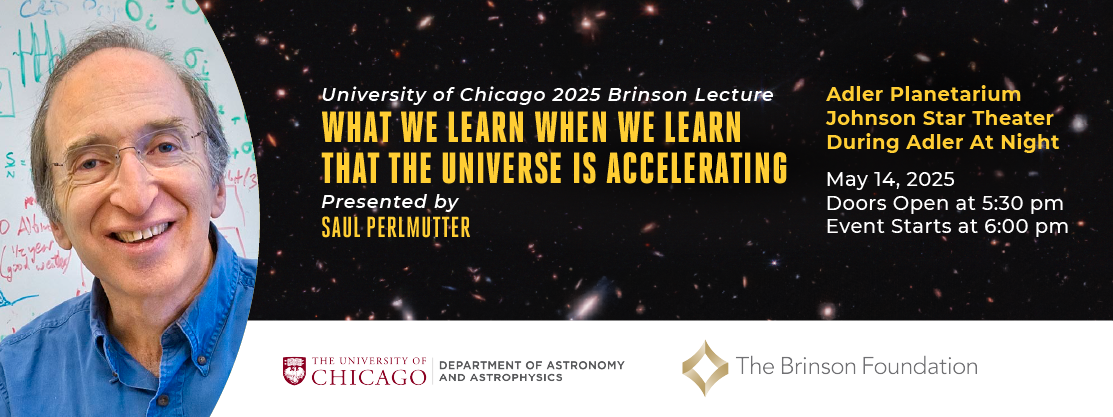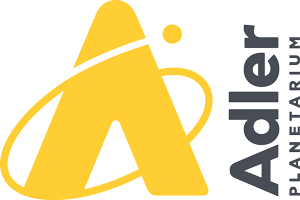Brinson Lecture: Saul Perlmutter
What We Learn When We Learn That The Universe Is Accelerating
When: May 14, 2025
Time: 6:00 pm–7:00 pm, followed by a Q&A | Doors open at 5:30 pm
Where: Adler Planetarium’s Johnson Star Theater
The discovery that the universe’s expansion is accelerating was not only unexpected, but it also led to the hunt for a mysterious Dark Energy that apparently comprises almost three-quarters of the “stuff” of the universe. How was this discovery made? What has been the progress since? And what does this tell us about how science—and scientific-style critical thinking—work?
Explore these ideas in this free public lecture at the Adler Planetarium, “What We Learn When We Learn that the Universe is Accelerating,” with Saul Perlmutter, Nobel Prize Winner in Physics. After the 45-minute lecture, there will be a 15-minute question and answer portion of the event.
How To Reserve Tickets
To attend this free event, tickets must be reserved online, in advance of your visit. Your event reservation ticket includes Museum Entry with access to all exhibitions. Adler at Night is free for Illinois residents!
If you would like to see a sky show during your visit, sky show tickets can be added on and purchased during check out for an additional fee.
Reserve Tickets To This Lecture HereWho Is Saul Perlmutter?
Saul Perlmutter is the winner of a Nobel Prize in Physics for the discovery of the accelerating expansion of the universe through observations of distant supernovae.
Born in Champaign-Urbana, IL and raised outside Philadelphia, PA, Perlmutter studied at Harvard then went on to receive his PhD from University of California, Berkeley, where he is currently a professor of physics. Perlmutter is the co-founder and leader of the Supernova Cosmology Project and Director of the Berkeley Institute for Data Science and Executive Director of the Berkeley Center for Cosmological Physics.
Thanks To Our Sponsors
This program is brought to you by the Brinson Foundation and the University of Chicago Department of Astronomy and Astrophysics.






